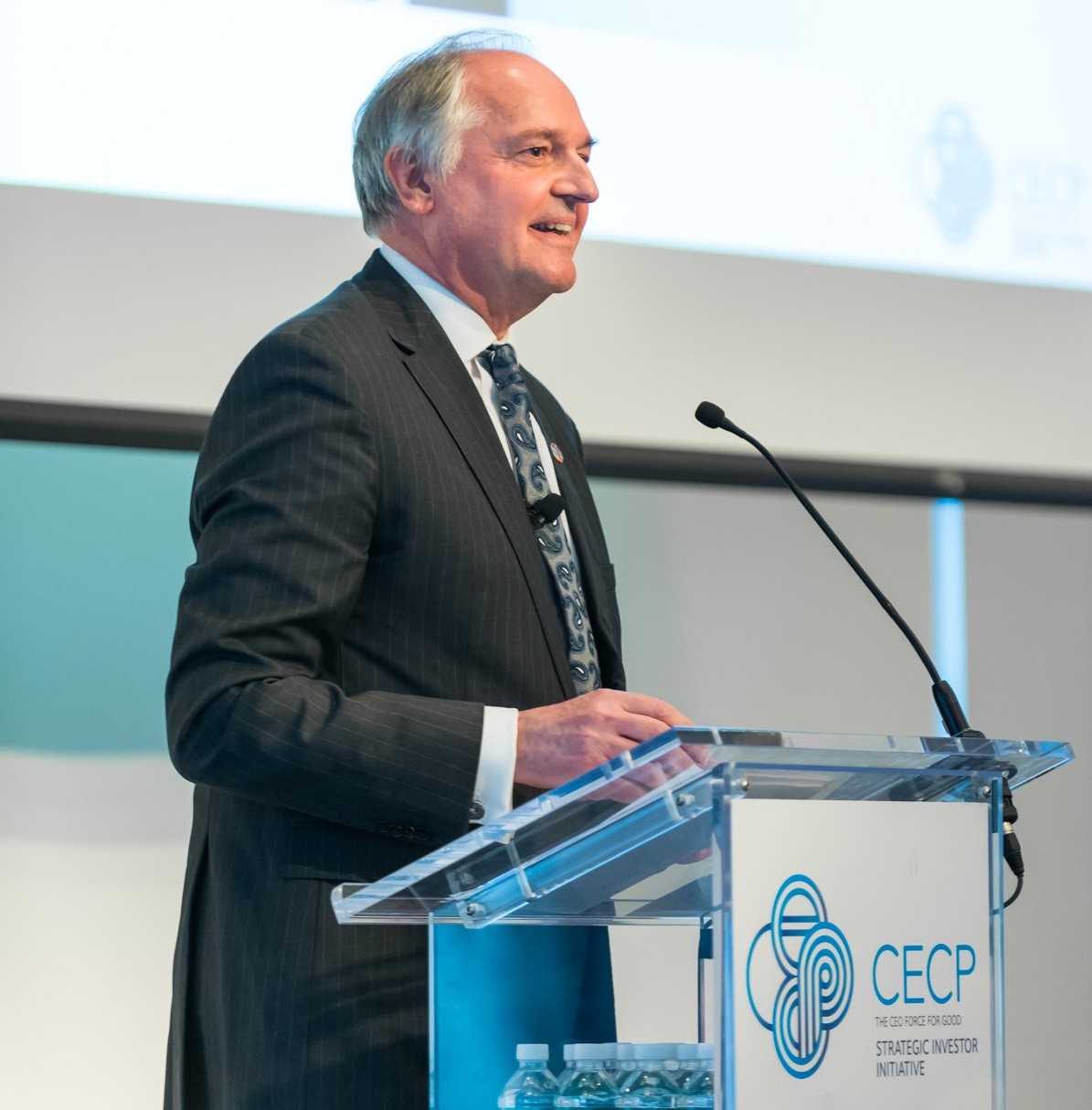
Economist Milton Friedman famously said the sole social responsibility of business is to maximize profits and shareholder returns. But this short-term, shareholder primacy perspective faces increasing public criticism—whether from influential executives like BlackRock CEO Larry Fink and Salesforce CEO Marc Benioff or coalitions like the Business Roundtable. Still, companies feel pressure from Wall Street to focus on short-term profits above all else.
Chief Executives for Corporate Purpose (CECP) is out to change that with a call-to-action for all public companies to commit to long-term business strategies by 2025 and engage more often with long-term oriented investors. “Our goal is to spark the movement of trillions of dollars in capital to companies that create value over the long term,” Nandika Madgavkar, senior director of CECP’s Strategic Investor Initiative, told TriplePundit.
The push for long-term thinking
The new pledge builds on years of work at the Strategic Investor Initiative, which includes engaging with companies and investors and compiling research about the benefits of long-term business planning.
“The power of the Strategic Investor Initiative is that is leveraging CECP’s longstanding network of CEOs and corporate responsibility departments to keep our fingers on the pulse,” Madgavkar said. “We understand what each of these groups is focused on and how trends shift.”
CECP created a proprietary template to guide companies through the process of creating what it calls Long-Term Plan presentations, which account for growth, strategy and risk, now and into the future.
“Most companies are already working on long-term business strategies,” Madgavkar said. “Creating a Long-Term Plan presentation is more about telling a cohesive story of what a company is doing across business units than it is about creating a new strategy.”
More than 30 CEOs of the world’s most prominent companies—representing 1 percent of U.S. listed companies and 6 percent of U.S. market capitalization—have presented their Long-Term Plans to investors at CECP’s CEO Investor Forums. “By lifting up these companies as examples, it demonstrates for those who are not yet convinced that there’s a movement happening,” Madgavkar said.
Further, CECP research indicates that Wall Street’s fixation on the short term may be fading: The public delivery of Long-Term Plans is associated with 1.83 percent higher market returns and 7.6 higher share turnover, according to a study the group published last year (PDF).
CECP is also looking to scale its platform so that more corporate leaders and investors have opportunities to communicate and assess companies’ Long-Term Plans. “By scaling, we’ll create a groundswell of demand for this information so that it becomes much more commonplace than it already is,” Madgavkar said.

(Image: Former Unilever CEO Paul Polman spoke out against short-termism at a recent CECP Investor Forum, noting Unilever's preference for long-term value investors and saying, “A business cannot be a bystander in a system that gives it life in the first place." )
Breaking down silos to disrupt short-termism
For years, the perception among many corporate investor relations (IR) departments was that investors don't want to hear about sustainability. However, as we continue to see, investors do care about what companies are doing to ensure the long-term sustainability of their operations—and they're asking for more of this information, not less.
Case in point: More than 80 percent of mainstream investors now rely on sustainability or ESG (environmental, social and governance) disclosures to make decisions, according to a recent survey published in the Financial Analysts Journal.
Much of CECP’s work with companies focuses on breaking down silos between corporate departments such as IR, corporate social responsibility (CSR) and the C-suite, to make sure all have ownership over long-term strategies that account for impacts beyond profit.
“IR departments have changed their perspective on CSR,” Madgavkar explained. “As opposed to the way it was, say, 20 years ago, where CSR was seen as a ‘nice-to-have,’ but rather it is now an imperative for business to create value over the long-term for significant stakeholders, not just short-term returns for traders.”
Still, many IR departments are slow to catch up, but the process of creating compelling, publicly-facing stories about the future can begin to change the tide.
“While many forward-looking IR leaders recognize the value in telling their long-term story, there’s still more work to be done,” Madgavkar told us. “Companies have told us that one of the benefits in giving a Long-Term Plan presentation is that the preparation work breaks down these silos inside a company and shows how it all fits together—which may lead to improvements in the strategy. And leaders from across business units see how they can better work together to achieve common goals.”
The bottom line
The new pledge represents the culmination of CECP’s work in engaging companies and investors around long-term planning. Companies can fulfill their commitments to the pledge by engaging with CECP’s Strategic Investor Initiative, dedicating time on their earnings calls to talk about long-term strategy, or sharing a Long-Term Plan in their annual reports.
“Our coalition at the Strategic Investor Initiative believes this is what’s needed to bring long-termism to the next level,” Madgavkar concluded. “To truly make an impact, we need this to be the new normal for companies.”
Don’t forget: Later this month, we’ll be hosting 3BL Forum: Brands Taking Stands – What's Next, October 29-30, at MGM National Harbor, just outside Washington, D.C. Nandika Madgavkar of CECP will join an onstage discussion exploring how ESG must integrate all departments of a company, including investor relations, human resources and communications.
We're pleased to offer 3p readers a 25 percent discount on attending the Forum. Please register by going to the 3BL Forum website and use this discount code when prompted: NEWS2019BRANDS.
Image credits: Flickr/Sam Valadi, Flickr/CECP Photo and Pexels/Jonas Ferlin

Mary has reported on sustainability and social impact for over a decade and now serves as executive editor of TriplePundit. She is also the general manager of TriplePundit's Brand Studio, which has worked with dozens of organizations on sustainability storytelling, and VP of content for TriplePundit's parent company 3BL.














